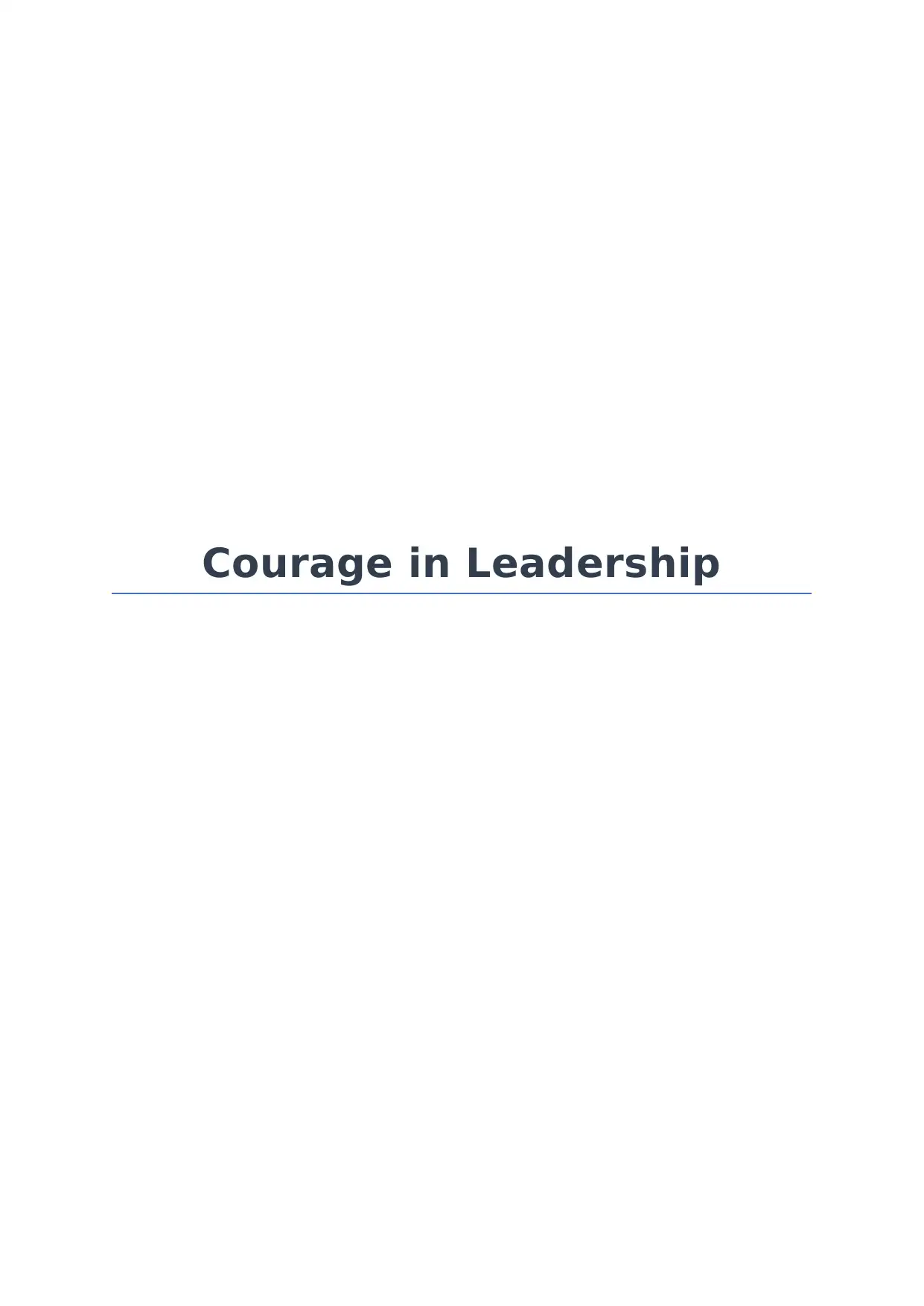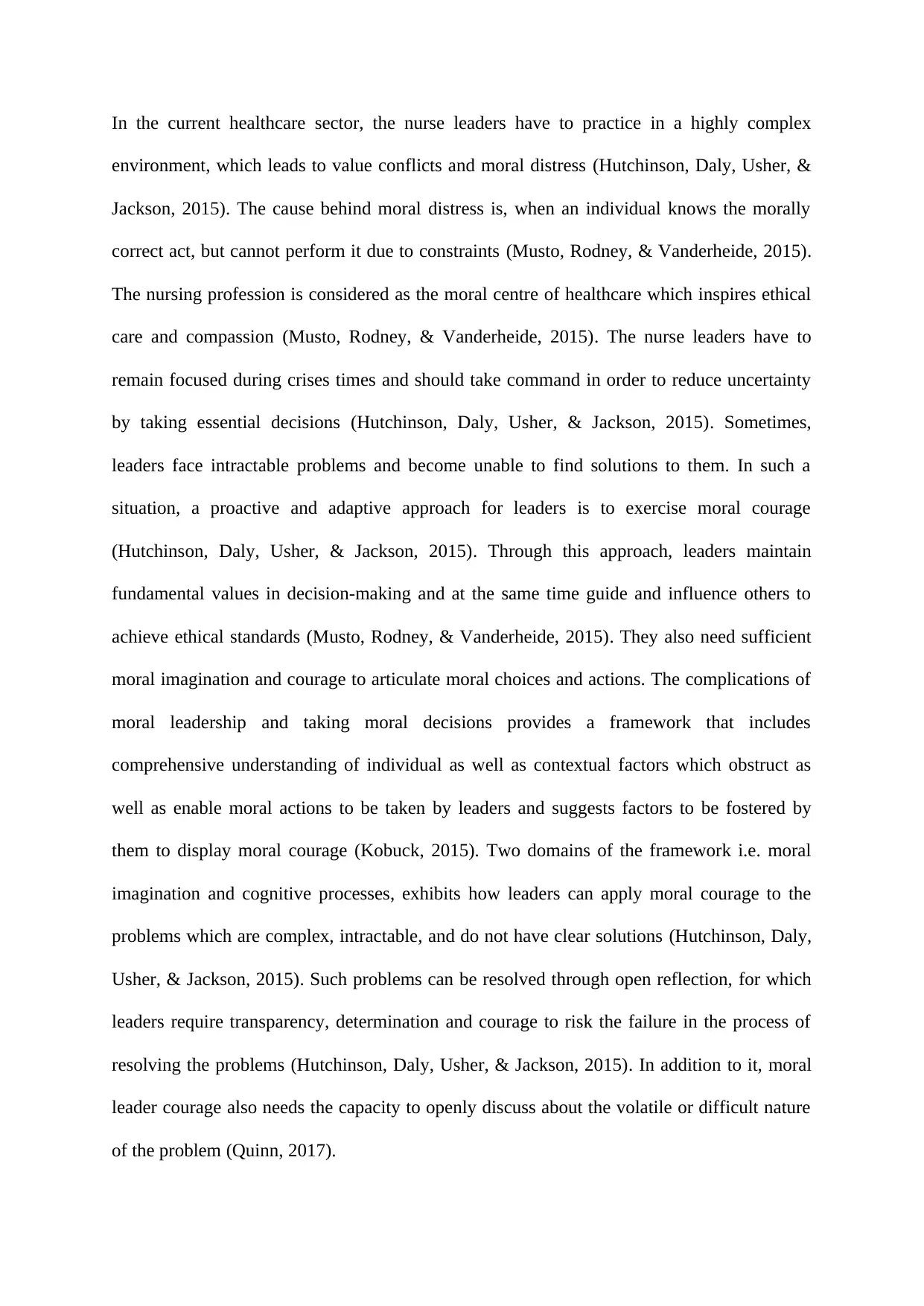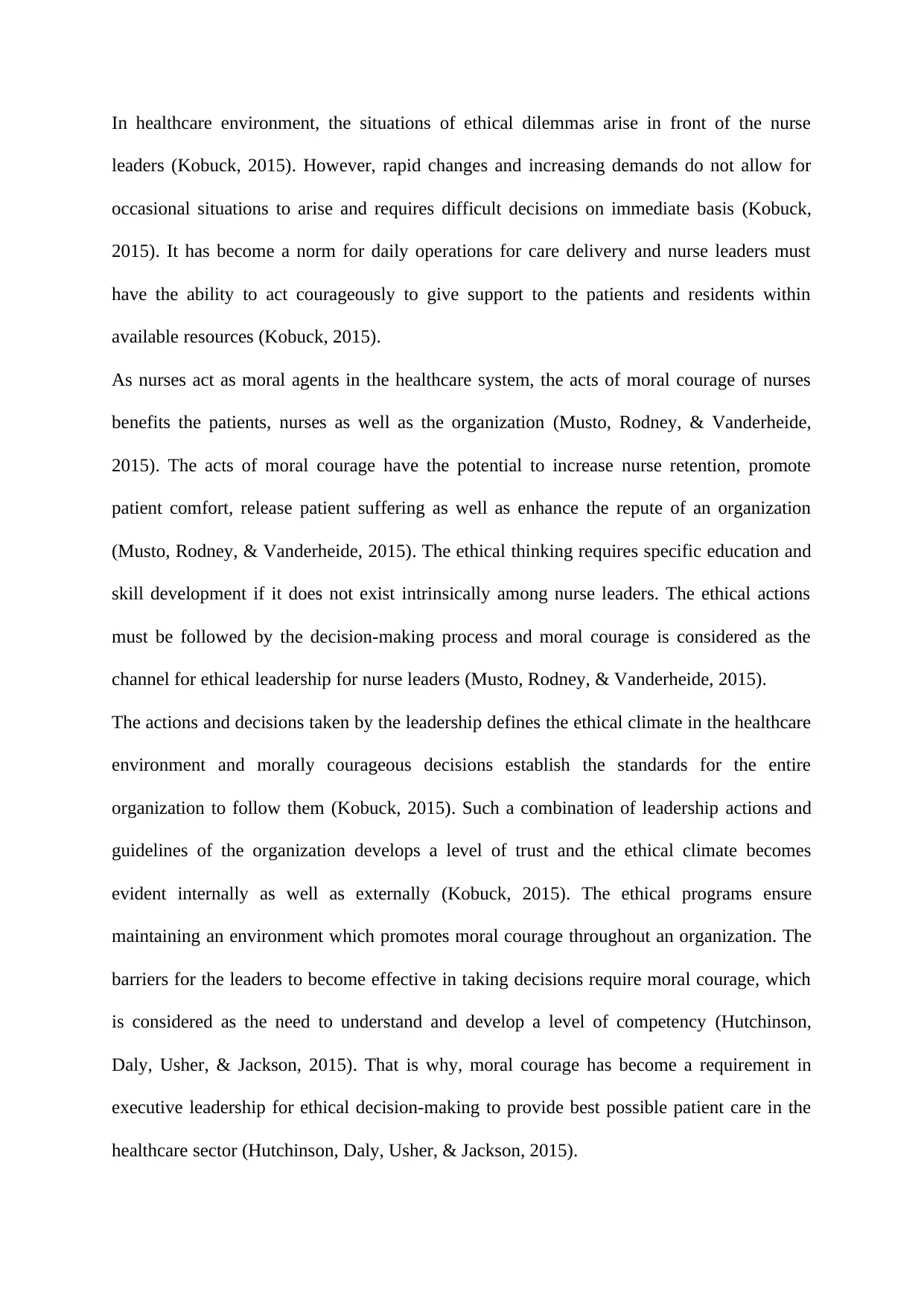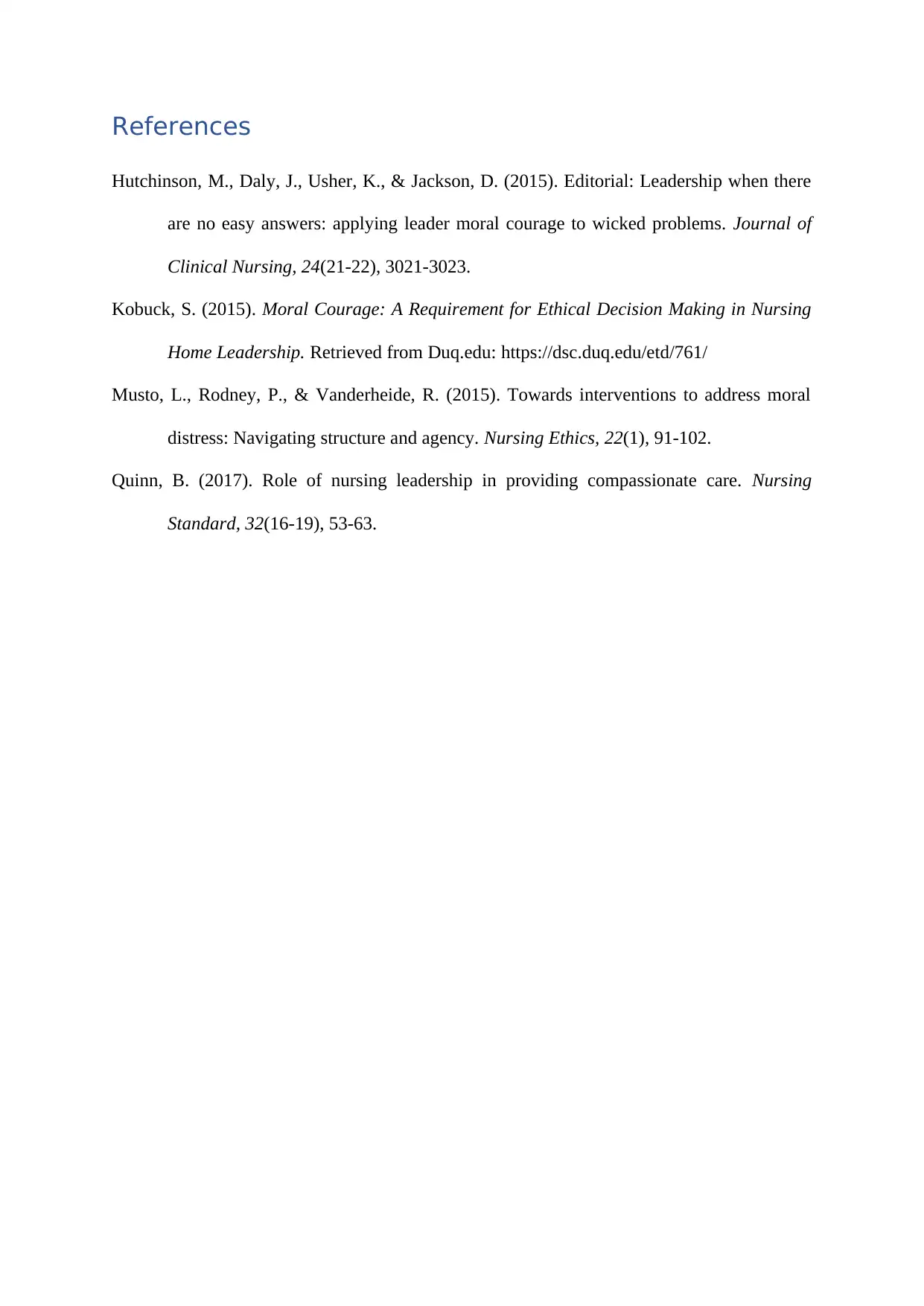Ethical Healthcare Leadership: The Role of Moral Courage
VerifiedAdded on 2022/12/19
|4
|939
|82
Essay
AI Summary
This essay critically analyzes the concept of courage in leadership within the context of an ethical healthcare environment. It defines moral courage and explores its necessity for leaders, emphasizing the challenges faced by nurse leaders in complex settings. The essay highlights the importance of moral courage in decision-making, particularly when addressing intractable problems, and its role in maintaining ethical standards and promoting patient well-being. It discusses frameworks that enable leaders to apply moral courage, including moral imagination and cognitive processes, and the need for open reflection and transparency. Furthermore, the essay examines how courageous leadership can transform individuals, engage others, and establish ethical standards, ultimately improving patient care and organizational reputation. The essay is supported by recent peer-reviewed journal articles and emphasizes the significance of ethical programs and the development of moral courage as a critical competency for healthcare leaders.
1 out of 4










![[object Object]](/_next/static/media/star-bottom.7253800d.svg)